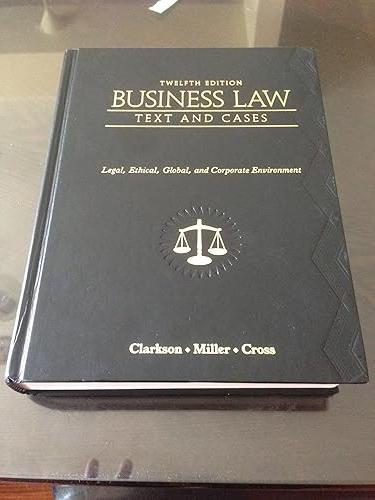While Charles McFarland was incarcerated in a state prison, two officers questioned him about his connection to
Question:
While Charles McFarland was incarcerated in a state prison, two officers questioned him about his connection to a handgun that had been used to shoot two other offi cers. McFarland was advised of his rights but was not asked whether he was willing to waive those rights. Instead, to induce McFarland to speak, the offi cers deceived him into believing that “[n]obody is going to give you charges.” McFarland made incriminating admissions and was indicted for possessing a handgun as a convicted felon. Should McFarland’s statements be suppressed—that is, not be treated as admissible evidence at trial—because he was not asked whether he was willing to waive his rights prior to making his self-incriminating statements? Why or why not? [United States v. McFarland, 424 F.Supp.2d 427 (N.D.N.Y. 2006)]
Step by Step Answer:

Business Law Text And Cases Legal Ethical Global And Corporate Environment
ISBN: 9780538470827
12th Edition
Authors: Kenneth W. Clarkson, Roger LeRoy Miller, Frank B. Cross





